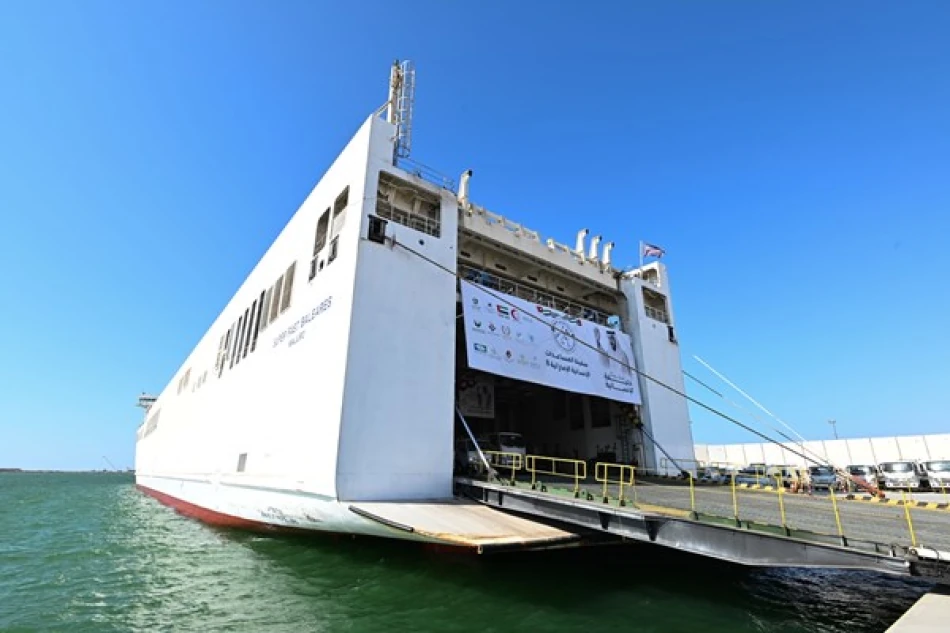
UAE's 8th Humanitarian Aid Ship 'Khalifa' Docks at Port of Al-Arish, Delivering Essential Supplies
UAE Delivers Eighth Humanitarian Ship to Gaza as Regional Aid Efforts Intensify
The UAE's "Khalifa Humanitarian Ship" arrived at Egypt's Al-Arish port yesterday carrying over 7,000 tons of critical supplies for Gaza, marking the eighth vessel in the Emirates' ongoing "Noble Knight 3" operation. The delivery brings total UAE humanitarian aid to Gaza beyond 80,000 tons, positioning the Emirates as one of the most significant non-governmental donors in the current crisis.
Strategic Maritime Corridor Emerges
The ship's journey from Abu Dhabi's Khalifa Port to Egypt's Al-Arish represents more than humanitarian goodwill—it demonstrates the UAE's sophisticated logistics capabilities and its growing role as a regional humanitarian hub. Unlike ad-hoc relief efforts, the Emirates has established a systematic supply chain that rivals government-led initiatives.
Ahmed Sari Al Mazrouei, Secretary-General of the UAE Red Crescent Authority, received the vessel alongside Egyptian officials and humanitarian representatives, highlighting the diplomatic coordination required for such operations. This level of institutional cooperation suggests the UAE views humanitarian aid as both moral imperative and strategic diplomacy.
Massive Scale of Relief Operations
The current shipment's composition reveals careful planning based on ground-level needs assessment. The 7,166-ton cargo includes 4,372 tons of food supplies, 1,433 tons of shelter materials, 860 tons of medical supplies, and 501 tons of hygiene materials—a distribution that reflects acute shortages in Gaza's civilian infrastructure.
Beyond Emergency Response
The inclusion of substantial shelter materials signals recognition that this crisis extends beyond immediate food and medical needs. The UAE appears to be preparing for prolonged displacement and infrastructure rebuilding, suggesting its aid strategy anticipates extended regional instability.
Regional Implications and Precedents
The UAE's humanitarian diplomacy mirrors its broader foreign policy approach seen in Yemen, Lebanon, and Syria—using aid delivery to maintain regional influence while building goodwill across political divides. This strategy has proven effective in positioning the Emirates as a neutral broker in complex regional conflicts.
Compared to traditional donor countries, the UAE's approach emphasizes speed and scale over bureaucratic processes. While European and American aid often faces legislative delays, the Emirates can deploy resources rapidly through its sovereign wealth infrastructure and streamlined decision-making.
Economic and Political Calculations
For the UAE, these humanitarian operations serve multiple strategic purposes beyond immediate relief. They demonstrate the country's logistical sophistication to international partners, reinforce its image as a responsible regional power, and create diplomatic capital that can be leveraged in future negotiations.
The systematic nature of the "Noble Knight 3" operation—with numbered ships and coordinated port operations—suggests this is becoming institutionalized rather than reactive policy. This approach positions the UAE as indispensable to regional crisis management, potentially influencing post-conflict reconstruction discussions and long-term political settlements.
Most Viewed News

 Layla Al Mansoori
Layla Al Mansoori






